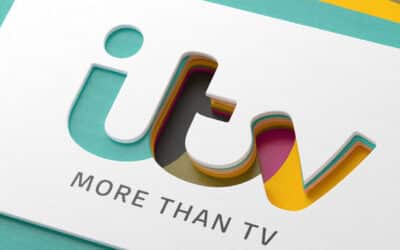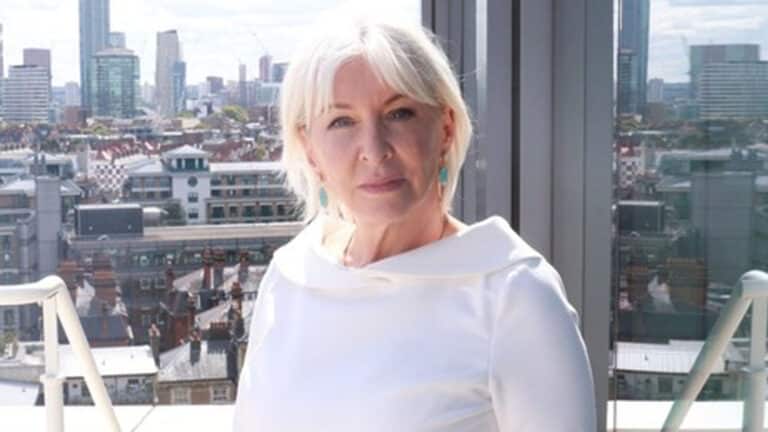The majority of Channel 4 content could be made in-house through new Government plans.
The White Paper, published today plans to scrap Channel 4’s publisher broadcaster model, making the channel more attractive to potential bidders.
This would make its obligations similar to those of BBC, ITV and Channel 5, which have to spent at least 25% of their original commissioning budget with indies.
Research from trade body, Pact, said this could lead to a £3.7bn loss in revenue for the indie sector over a decade, with out-of-London production companies impacted the most.
“Channel 4 will study the White Paper issued by DCMS, and a considered response will follow. However, Channel 4 remains committed to upholding and maximising its remit and public service purpose that has enabled it to shape Britain’s creative culture and make a significant contribution to the creative industries, while also investing across the UK’s Nations and Regions to create local and regional economic and social benefit,” read a statement from Channel 4.
Tools for the future
The Department for Digital, Culture Media & Sport explained that the changes would give Channel 4 “the tools it needs to succeed in the future as a public service broadcaster while protecting its distinctiveness”.
The paper stated that indies were “increasingly less reliant on Channel 4 for commissions.” Saying that only 7% of the sector’s revenues come from the broadcaster and it spends “significantly less in the north, as a percentage of total production spend, than ITV.”
“Channel 4 also spends less with the smallest independent producers than all other large PSBs – for example, only 16 per cent of Channel 4’s average external commissioning spent between 2018 and 2020 was with producers with turnover of less than £10m, compared to 37 per cent of Channel 5’s,” reads the paper.
“Viewer choice is no longer a problem in the world of smart TVs and streaming sticks, catch-up and on-demand. This rapidly changing media landscape means Channel 4 is facing unprecedented competition for viewers, programmes and talent from global giants with deep pockets. Netflix spent £779 million on UK original productions in 2020 – more than twice as much as Channel 4.”
It believes that under public ownership Channel 4 can borrow money, or raise private sector capital, by issuing shares, rather than being “heavily reliant on cyclical advertising revenues which are moving to digital platforms.”
Paul Siegert, the NUJ’s National Broadcasting Officer, said:
“It is time that many of the out-of-date rules around broadcasting were brought up to date. We welcome the news that Netflix and other streaming companies will now be regulated in the same way as traditional broadcasters. For too long they have had an unfair advantage in the way they have operated and the rules they have had to play by. A more level playing field for all broadcasters is welcomed.
“But the issue dominating the White paper is the government’s decision to privatise Channel Four. The whole industry and many in the Conservative Party recognise this is the wrong decision made at the wrong time. Channel Four has never been healthier and why replace something that isn’t broken.
“It is important if the privatisation goes ahead then there are safeguards put in place. We need cast iron guarantees that whoever buys Channel Four will have to commit to keeping the much respected and award winning one-hour nightly news programme.”
“Golden age”
Other proposals in the White Paper will “overhaul and simplify” the remits for Public Service Broadcasters (PSBs), with a focus on creating “distinctive shows which reflect British culture, support domestic film and TV production, and provide impartial and accurate news.”
There will be new legislation to ensure that PSB content is always available and “easy to find” on streaming platforms, smart TVs and set-top boxes.
“The UK’s TV and radio industries are world-renowned for their creativity, driven by exceptional talent that is delivering groundbreaking public service programming,” stated Culture Secretary Nadine Dorries.
“Set against the backdrop of the digital transformation of our viewing habits, today’s plans will revamp decades-old laws to help our public service broadcasters compete in the internet age and usher in a new golden age for British TV and radio. This will provide jobs and growth in the future along with the content we all love.”
In a statement an ITV spokesperson said:
“We will engage carefully with the substance of the White Paper once it is published, but many of its proposals – notably reform to prominence and inclusion rules, a more flexible approach to remits, and changes to the listed events regime – look very sensible.”
Sport
The listed events regime is to be changed to ensure that that PSBs can secure rights to air major sporting events, including the FIFA World Cup and Wimbledon,
Once listed, broadcasting rights to these events must be made available for purchase first to ‘qualifying broadcasters’ – those which reach 95 per cent coverage of UK viewers and at no additional cost to the viewer than the licence fee.
Film
DCMS is also to fund the British Film Commission with £4.8m over 3 years to support the growth of 7 geographic production hubs and “numerous” new studio developments.
Philippa Childs Head of BECTU said:
“There could not be a worse time to introduce further uncertainty for the creative industries, who were among the hardest hit by the pandemic, & comtinue to face a chronic skills shortage. Ideology, not public interest, is at play here.”












